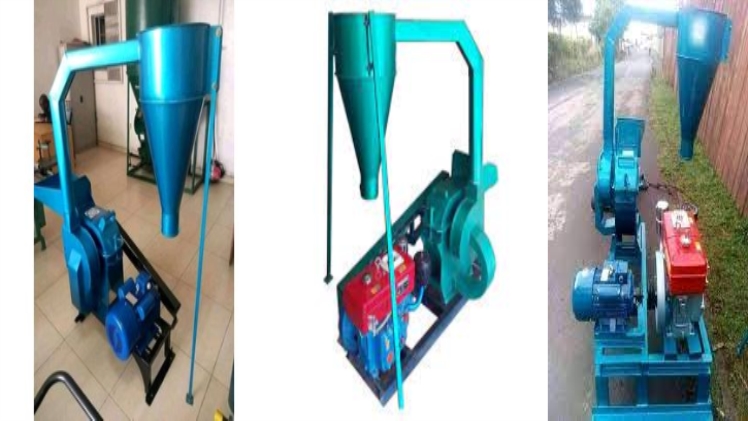Maize milling dates back to ancient times from which people would obtain maize flour for various uses. Posho mills, which facilitated this process, remain in use to date. Have you a plan to set up a posho mill business, read this article and get to know what you should consider when purchasing any brand of posho mill in Kenya.
Posho mills come in different brands suited for different influential factors. True to say, posho mills manufacturers have done their best to ensure that their products remain in service to humanity despite any unfavorable conditions that may occur. Talk of conditions like energy efficiency, source of power, cost, and a lot more.
From left: electric driven, engine driven, and combine electric and engine driven.
This is why you will find different posho mill brands in the market today, some of which appear in the picture above.
Features of posho mills
Posho mills come in metallic bodies mainly steel. They are painted to keep them from rusting. Another key feature of the posho mill to consider is the power source. Posho mills are either powered by electricity, with the aid of an electric motor or engines that use fossil fuels; diesel and petrol. Posho mills that are powered by water are outdated and hence hard to find.
In addition, posho mills also feature different scales of production. Depending on the business traffic expected, one can choose from small, medium, and large-scale posho mills.
Energy efficiency is another key feature to consider when choosing a posho mill in Kenya. High-efficiency mills are costly but they save you a lot of finances. They use low power hence low power bills which inturnincreases your profit margins.
All these features among others combined impact positively on the posho mill price in Kenya.
Applicability
Posho mills are highly applicable in Kenya as they can be used in any part of the country. As such, engine-driven posho mills come in handy for use in remote areas of the country which are not connected to the main-grid electric system.
Advantages of posho mills
Below are some pros of the posho mills in Kenya.
Posho mills save the day for the production of maize flour and other bi-products in a fast and reliable way. Unlike the olden days when people relied on water-driven mills which in a way were scarce forcing them to move for long distances, posho mills have changed the story.
People are now able to get maize flour very fast. With the small-scale posho mills producing 3-4 90Kgs bags per hour, it is evident that the posho mills have eased the lives of Kenyans in a great way.
They are easy to operate and hence no need of paying skilled labor or acquiring education on how to use them.
Disadvantages of posho mills
Below are some of the shortcomings of the posho mills.
True to any machinery, maintenance is key to ensure it gives out the best for a long time. This means a special allocation of resources towards its maintenance.
Another inevitable disadvantage of the posho mills is that it relies on electric or fuel power.No variant of the posho mill relies on manual power. As such, an extra cost is incurred to keep it running.
Conclusion
Not even the power source or the price of the posho mill could account for anything to make you not set the ball rolling with your posho mill business wherever you are.True to say, a posho mill gives value for your money and keeps you earning. Indeed, the posho mill is a game-changer.

